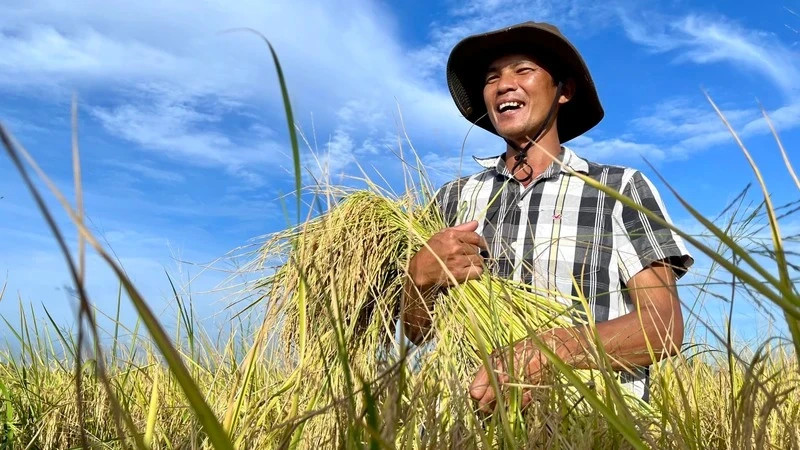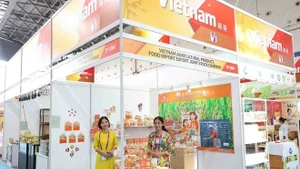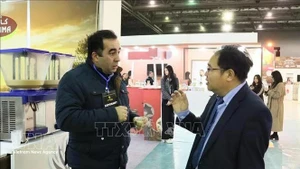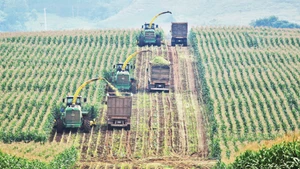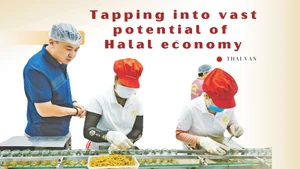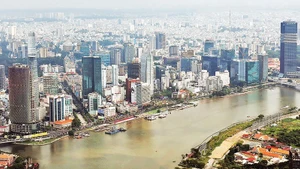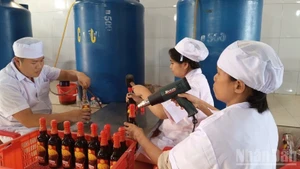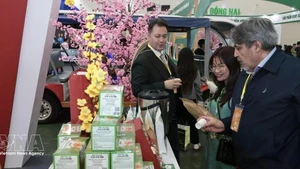Challenges persist in the implementation of the project
According to the Ministry of Agriculture and Rural Development, after one year of piloting the “One Million Hectares of High-Quality, Low-Emission Rice Cultivation Project Associated with Green Growth in the Mekong Delta by 2030” (One Million Hectares Project), initial results across the five provinces of Kien Giang, Soc Trang, Tra Vinh, Dong Thap, and Can Tho have demonstrated clear economic and environmental benefits.
Specifically, the pilot models have reduced production costs by 8.2% to 24.2% through measures such as reducing seed usage by 30–50%, saving 30–70 kg of fertiliser per hectare, decreasing pesticide applications by one to four times, and cutting irrigation water use by 30–40%. At the same time, rice yields have increased by 2.4% to 7% while farmers’ incomes climbed by 12% to 50%, equivalent to an additional profit of 4 to 7.6 million VND per hectare compared to traditional practices.
More importantly, the models have helped reduce greenhouse gas emissions by an average of 2 to 12 tonnes of CO₂ equivalent per hectare. Notably, all harvested rice under the project has been purchased by enterprises at prices 200–300 VND/kg higher than the market rate, encouraging farmers to participate.
Despite these achievements, the project still faces a number of challenges in practice.
Minister of Agriculture and Environment Do Duc Duy noted that some localities remain unclear about the project’s core objectives.
“Some believe that infrastructure must come first. While this is valid, infrastructure development and project implementation should proceed in parallel. There are components that can begin immediately by leveraging existing investment projects,” Minister Duy explained.
He also pointed out that some local authorities are overly focused on carbon credit trading, whereas the project’s primary goals are sustainable production transformation, cost reduction, improved product quality, added value, and increased farmer incomes. As a result, several key components have been overlooked, including advanced farming techniques, deep processing, and logistics investment.
Irrigation infrastructure, which is crucial for water management and implementing modern farming practices, remains underdeveloped. In many areas, farmers, cooperatives, and even businesses have been slow to adopt innovative production methods, especially when these require upfront investment. There is still a mindset of relying on government support.
Additionally, the processing of agricultural by-products such as straw to reduce emissions remains limited to a few pilot models, with low volumes of processed materials.
These issues have become bottlenecks that must be addressed urgently to ensure the project’s long-term effectiveness.
Coordinated solutions required
To enhance the effectiveness of the One Million Hectares Project, Minister Do Duc Duy urged Mekong Delta provinces to quickly approve their local implementation plans and issue support policies within their jurisdiction.
He also encouraged localities to expand the adoption of sustainable farming practices according to the project roadmap, clearly define core and buffer production zones, and develop concrete action plans.
Priority should be given to upgrading on-field irrigation systems, implementing water-saving and low-emission irrigation models, and improving post-harvest infrastructure such as storage and logistics so as to reduce losses.
“For regional and inter-regional infrastructure, the Ministry of Agriculture and Environment will take the lead in proposing resource mobilisation to the Government. However, for infrastructure within specific production areas, local authorities must allocate budgets and integrate funding sources to support implementation,” Minister Duy said.
He also called on the Ministry of Industry and Trade to review and recommend policy adjustments for managing rice exports to ensure long-term sustainability, while supporting enterprises in trade promotion and market development.
To international organisations and development partners, the minister appealed for close cooperation with the Ministry of Agriculture and Environment in providing technical and financial support, sharing best practices, and mobilising green finance to scale up low-emission rice production models.
Within the Ministry, the minister tasked the Department of Crop Production and the Plant Protection Department with quickly finalising measurement, reporting, and verification (MRV) procedures as well as the sustainable farming guidelines under the project framework.
The Department of International Cooperation was assigned to coordinate with the Department of Climate Change to advise on and propose the establishment of a negotiation group for the Emission Reduction Payment Agreement (ERPA). They are also tasked with completing the investment policy approval process and initiating a pre-feasibility study for a World Bank-funded infrastructure project to support the areas participating in the initiative.
